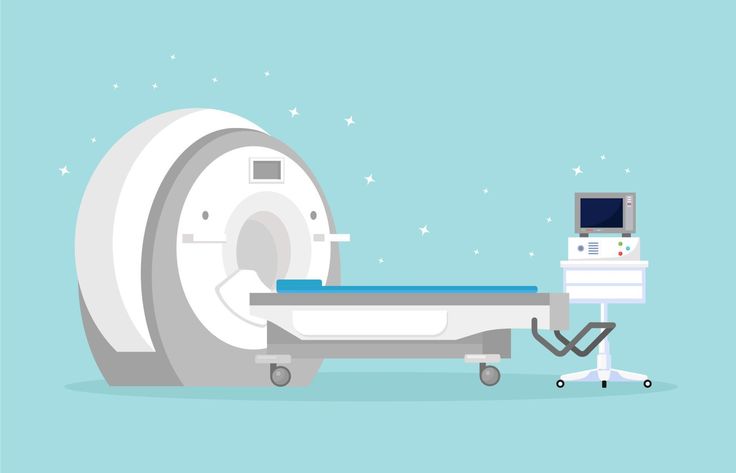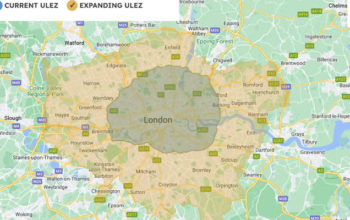The human brain is one of the most complex and vital organs in the body, responsible for everything from our thoughts and emotions to our physical actions. When neurological issues arise, it is crucial to have accurate and detailed imaging to diagnose and treat potential problems effectively. Magnetic Resonance Imaging (MRI) is a powerful tool in modern medicine, offering unparalleled insights into brain health. In this article, we’ll explore the importance of MRI brain scans, their benefits, and how to find the best MRI brain scan near me.
What is an MRI Brain Scan?
An MRI brain scan is a non-invasive imaging technique that uses magnetic fields and radio waves to create detailed images of the brain and its structures. Unlike X-rays or CT scans, MRI does not use ionizing radiation, making it a safer option, especially for repeated imaging.
MRI brain scans are used to diagnose a wide range of neurological conditions, including tumors, stroke, multiple sclerosis, brain injuries, and neurodegenerative disorders like Alzheimer’s disease. The high-resolution images provided by MRI allow doctors to see the brain’s anatomy in great detail, aiding in the early detection and accurate diagnosis of these conditions.
The Importance of MRI Brain Scans
Neurological health is paramount, as the brain controls all bodily functions. When something goes wrong in the brain, the consequences can be severe, affecting a person’s quality of life. Early diagnosis is key to managing many neurological conditions, and MRI brain scans play a crucial role in this process.
By detecting abnormalities early, MRI brain scans enable healthcare providers to develop effective treatment plans. This can prevent further complications and improve outcomes for patients. For those experiencing symptoms such as persistent headaches, seizures, memory loss, or changes in cognitive function, an MRI brain scan can provide essential insights into the underlying causes.
How Does an MRI Brain Scan Work?
MRI machines use a powerful magnetic field and radio waves to excite hydrogen atoms in the body. These atoms emit signals that are detected by the MRI machine and processed by a computer to create detailed cross-sectional images of the brain.
The procedure is typically performed in a hospital or imaging center and takes about 30 to 60 minutes. During the scan, the patient lies still on a table that slides into the MRI machine. It is important to remain as still as possible to ensure clear images. In some cases, a contrast agent may be injected into the bloodstream to enhance the visibility of certain structures or abnormalities.
Benefits of MRI Brain Scans
1. Non-Invasive and Safe
- No Radiation: Unlike CT scans, MRI does not use ionizing radiation, making it a safer option, particularly for children and pregnant women.
- Detailed Imaging: MRI provides high-resolution images that are more detailed than those obtained from other imaging techniques, making it ideal for detecting small or subtle abnormalities.
2. Early Detection of Neurological Conditions
- Tumor Identification: MRI is highly effective at detecting brain tumors, even in their early stages, allowing for prompt treatment.
- Stroke Diagnosis: MRI can quickly identify areas of the brain affected by stroke, enabling immediate intervention to reduce damage.
- Multiple Sclerosis: MRI is the preferred method for diagnosing and monitoring multiple sclerosis, as it can detect lesions in the brain and spinal cord.
3. Comprehensive View of Brain Structures
- Functional MRI (fMRI): In addition to structural imaging, functional MRI can measure brain activity by detecting changes in blood flow, helping to map brain function and identify areas responsible for critical tasks like movement and speech.
How to Find the Best MRI Brain Scan Near You
Finding the right facility for your MRI brain scan is crucial to ensure accurate results and a comfortable experience. Here are some tips to help you find the best MRI brain scan services near you:
1. Research and Reviews
- Read Patient Reviews: Online reviews and testimonials can provide insight into the quality of care and service at different imaging centers. Look for facilities with consistently positive feedback.
- Ask for Recommendations: Consult with your primary care physician or neurologist for recommendations on reputable imaging centers in your area.
2. Check Accreditation
- Accreditation: Ensure that the imaging center is accredited by recognized organizations such as the American College of Radiology (ACR). Accreditation indicates that the facility meets high standards for imaging quality and patient safety.
3. Consider Technology and Expertise
- State-of-the-Art Equipment: Look for centers that use the latest MRI technology, as newer machines often provide clearer images and more comfortable experiences.
- Experienced Radiologists: The expertise of the radiologist interpreting your MRI scan is just as important as the technology used. Choose a facility with board-certified radiologists who specialize in brain imaging.
4. Convenience and Comfort
- Location: Choose a center that is conveniently located to reduce travel time and stress.
- Patient Comfort: Some MRI machines are designed to be more spacious or even open, which can help reduce anxiety for claustrophobic patients. Inquire about the type of MRI machine used if this is a concern for you.
What to Expect During Your MRI Brain Scan
Understanding what happens during an MRI brain scan can help ease any anxiety you might have about the procedure. Here’s a step-by-step guide:
- Preparation: You may be asked to change into a hospital gown and remove any metal objects, such as jewelry or watches, as they can interfere with the MRI’s magnetic field.
- Positioning: You will lie down on a padded table, and your head will be secured to keep it still during the scan.
- The Scan: The table will slide into the MRI machine, which is a large, cylindrical device. You’ll hear loud knocking or thumping noises during the scan, which is normal. Some facilities provide earplugs or headphones with music to help block out the noise.
- Duration: The scan typically lasts 30-60 minutes. It’s crucial to remain still to ensure clear images.
- Post-Scan: After the scan, you can resume normal activities immediately. The radiologist will analyze the images and send a report to your doctor, who will discuss the results with you.
Conclusion
MRI brain scans are an invaluable tool in modern medicine, providing detailed insights into the brain’s structure and function. Whether you’re experiencing neurological symptoms or undergoing routine screening, finding the best MRI brain scan services near you is essential for accurate diagnosis and effective treatment. By choosing a reputable facility with state-of-the-art technology and experienced professionals, you can ensure that your brain health is in good hands.
Frequently Asked Questions (FAQs)
1. Is an MRI brain scan painful?
No, an MRI brain scan is a painless procedure. You may feel some discomfort from lying still for an extended period, but the scan itself does not cause any pain.
2. How long does it take to get MRI brain scan results?
The results of your MRI brain scan are usually available within a few days. Your doctor will review the images and discuss the findings with you.
3. Can anyone get an MRI brain scan?
Most people can safely undergo an MRI brain scan. However, individuals with certain implants or medical devices, such as pacemakers, may not be eligible due to the strong magnetic field used in MRI.
4. What should I do if I’m claustrophobic?
If you’re claustrophobic, inform the imaging center beforehand. Many facilities offer open MRI machines or other accommodations to help you feel more comfortable during the scan.
5. Does insurance cover MRI brain scans?
Most health insurance plans cover MRI brain scans if they are deemed medically necessary. Check with your insurance provider to confirm coverage and any out-of-pocket costs you may incur.



